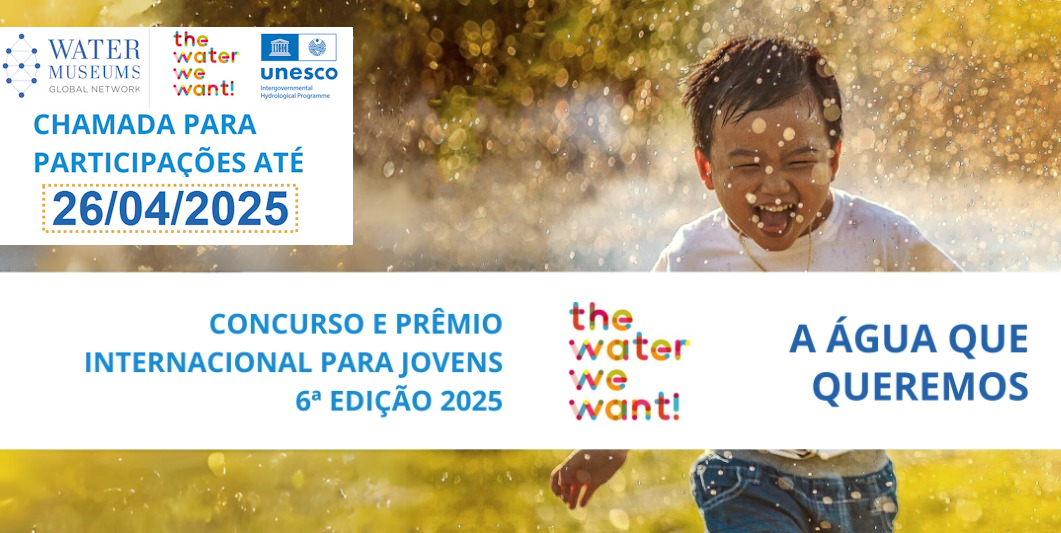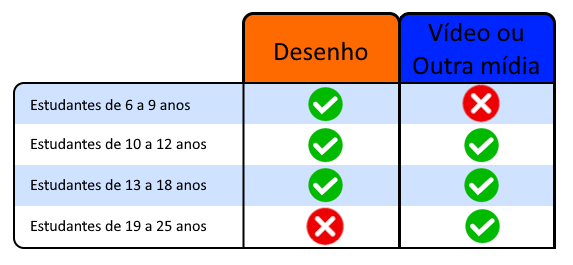
The Water We Want Contest (The Water We Want) is open for submissions. Aiming to explore our multifaceted water heritage—natural and cultural, tangible and intangible—through the perspectives of young people to build a more sustainable future.
Through this contest, running from November 2024 to April 2025, the Global Network of Water Museums (WAMU-NET) seeks to strengthen water sustainability education and awareness efforts, engaging young people as storytellers and narrators of our "liquid" future.
How can we change people's mindsets and inspire new behaviors and attitudes to be more respectful toward nature and promote awareness of all water uses? What daily actions can we take to protect the increasingly scarce water resources we rely on? And what can we learn from our inherited legacies to seek new solutions and promote the green recovery of our planet?
This contest calls on the young generations around the world to creatively explore the critical importance of any form of water heritage, both natural and cultural, tangible and intangible. The contest is open to schools, educational institutions, and civil society organizations worldwide. All entries must be submitted through the members of the Global Network of Water Museums.
This contest aims to empower excellence, strengthen the visibility of educational activities implemented by water museums, and promote them worldwide.
School students and young participants are encouraged to develop innovative and engaging ideas by proposing responsible and visionary uses of water.
Any interested school or teacher should:
Only entries within the following categories will be admitted to the contest:

1. Drawings (individual or class compositions)
Open for ages 6 to 9, 10 to 12, and 13 to 18;
2. Videos and other media
Individual or class compositions; this category includes videos, photos, single-page posters, poems, soundscapes, and music, including reinterpretation of traditional water-related music.
Open for ages 10 to 12, 13 to 18, and 19 to 25.
Contestants should choose only one type of art from the categories listed above.
Participants are encouraged to submit works in the highest possible resolution.
By April 26, 2025, all submissions and entries must be sent by email to the Brazilian Water Museum (museudaagua@uft.edu.br), including:
B. An entry (only one type of work from the entries listed above).
The Application Form also includes the Terms and Conditions for participating in the contest.
Each entry must be submitted with a concise title and a brief description (maximum 200 words).
It is mandatory to include English subtitles in all submitted works (including texts and dialogues). Works without English translation will not be considered.
Only one work may be submitted by a single classroom or individual student.
We provide here a support document with all the instructions.
All works selected by participating WAMU-NET members are eligible to receive awards and special mentions. There will be six awards (one per age group and category).
The six best works will receive a cash prize of €250 and an Award Certificate signed by the President and Executive Director of the Global Network of Water Museums.
Final winners will be announced in June during a dedicated webinar organized with UNESCO-IHP representatives, educators, and museums worldwide.
The Global Network of Water Museums (WAMU-NET) is a “flagship initiative” of UNESCO's Intergovernmental Hydrological Program aimed at raising awareness of our precious water heritage.
The Global Network seeks to find solutions to current water challenges by connecting past and present water management practices to sustainable Development Goals (SDGs). WAMU-NET promotes the core values of any type of inherited water heritage, both natural and cultural, tangible and intangible.
All WAMU-NET members are committed to promoting a new water ethic, reconnecting humanity with water heritage, including its social, cultural, artistic, and spiritual dimensions.
All members commit to publicizing the TWWW contest as an integral part of their educational activities through newsletters and all types of communication to foster participation and increase awareness of our inherited water heritage and our most precious life-giving resource.